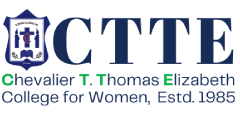Priya .R (2011-2014) Mayor, Greater Chennai Corporation
Lekkha. K (2012-2015) Advocate, High Court of Chennai
Amsaveni.S (2012-2015) Advocate
Anthea Vicky (2015-2018) HR Manager, AVASOFT
Suchithra (1996-1999) CRM, Export Freight Limited
Anitha (2010-2013) Maersk Logistics
Sinya (2011-2014) Assistant Manager, CAMS
Aarthi.S (2008-2012) Assistant Professor
Swetha.M (2013-2016) Finance Process Associate, Accenture
Sandhya (2009-2012) Indian Bank
Swetha.K(2018-2021) Standard Chartered Bank
Karthiga.S (2015-2018) TCS
Anitha.S (2016-2019) TCS
Aishwariya Hemalatha (2017-2020) TCS
Shruthi Priya (2010-2013) Apollo
Poorana Deepika (2018-2021) Executive Director, Dubai
Santhana Lakshmi(2006-2009) Research Consultant, USA



